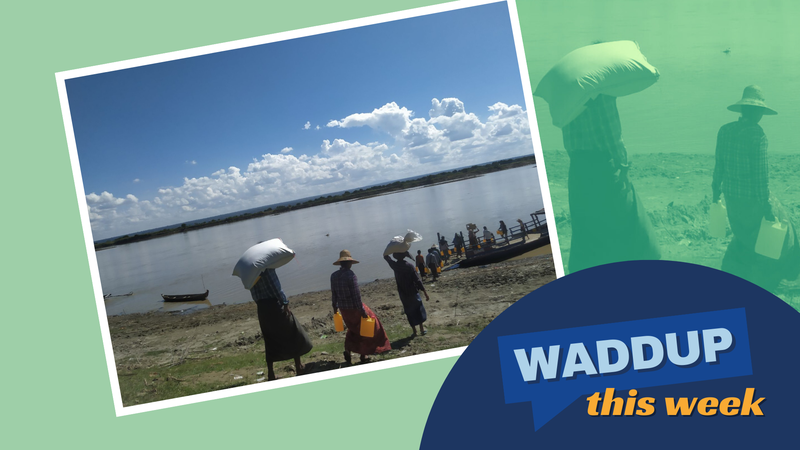Bringing hope to the vulnerable in Myanmar’s war
Peter Waddup, CEO - The Leprosy Mission Great Britain
Have you ever struggled to find a glimmer of hope in a seemingly hopeless situation? Looking back, maybe you can recall a time when hope has broken through. Against all odds, its spark has journeyed through what seems like unsurmountable difficulty to reach someone in desperate need. This hope might not change their overarching situation. But in that moment, it transforms someone's world and gives them the strength they need.
This week marks four years since Myanmar's military coup. On 1 February 2021 Myanmar's military seized power provoking an armed rebel response. Tragically the world has watched a deepening humanitarian crisis unfold before its eyes. During the past year, the rebels have made major gains. So much so, as the conflict enters its fifth year, Myanmar is on the verge of economic collapse. The cost to human life is catastrophic. The United Nations estimates a staggering 15 million people in Myanmar are expected to face hunger in 2025, up from 13.3 million last year. That’s a quarter of the population.
In the past month, the UK government's changing travel advice to Myanmar has mirrored the stark situation. Now it is only safe to travel to the capital Naypyidaw and Yangon. Fighting has engulfed the majority of the country. Airstrikes, roadblocks and landmines are everyday events with more than 3.5 million people displaced as a result.
Food and medicine are the greatest needs for communities affected by leprosy, in which poverty is escalating. Spiralling costs and rapid inflation have seen prices rise each month. People simply can’t afford food and are going hungry. As a result their health is deteriorating.
Leprosy continues to be a real problem in Myanmar, and a major cause of disability. Yet the conflict means the country's two specialist leprosy hospitals are no longer able to provide services. The hospital in Mandalay has become an internally displaced people's camp. The hospital in Mawlamyine, where The Leprosy Mission once provided services, is inaccessible.
Leprosy specialist care has no option but to transfer to the community, to be carried out alongside the fighting. I am in awe of the courage and tenacity my colleagues in Myanmar have shown. They are determined to provide medical care to everyone who needs it.
Door to door visits are being carried out to find and cure people with the early symptoms of leprosy. This is vitally important before nerve damage and injury cause disability. Dr Zaw, the former surgeon at Mawlamyine Hospital, is restoring movement to disabled hands and feet as well as treating severe ulcers. These procedures are taking place in make-shift operating theatres and wards. The pop-up facilities have been set up in Disability Resource Centres and Catholic clinics across Myanmar. It really is a case of bringing life-changing care to the frontline.
The Leprosy Mission’s specialism in making and fitting prosthetic limbs is proving invaluable. Many victims of landmines have regained their independence with the fitting of a bespoke limb. Whether someone is affected by leprosy or not, in a landscape where medical care is scarce, everyone is helped wherever possible. It is simply incredible to witness a team’s tenacity in such a long-lasting crisis.
Meanwhile 500 members of a leprosy-affected person’s network talk to each other as much as broken internet and telecommunications allow. They have made it their mission to find people showing the early signs of leprosy. They go to every length to find them and get the cure for leprosy. Even if that means accompanying them to knock on a government health worker’s door to get treatment. Where there is a will there is a way!
The greatest privilege in my job is to see hope set ablaze through the kindness of a fellow human being. It never fails to bring beauty among the ashes. I always remind myself of what is possible when I hear of the many desperate situations in the world today. In the meantime, I continue pray for a resolution to the devastating conflict in Myanmar. That peace will be restored ahead of a brutal fifth anniversary.

Leprosy Mission staff have delivered emergency food parcels containing rice, chickpeas and oil to more than 700 families in Myanmar to alleviate hunger